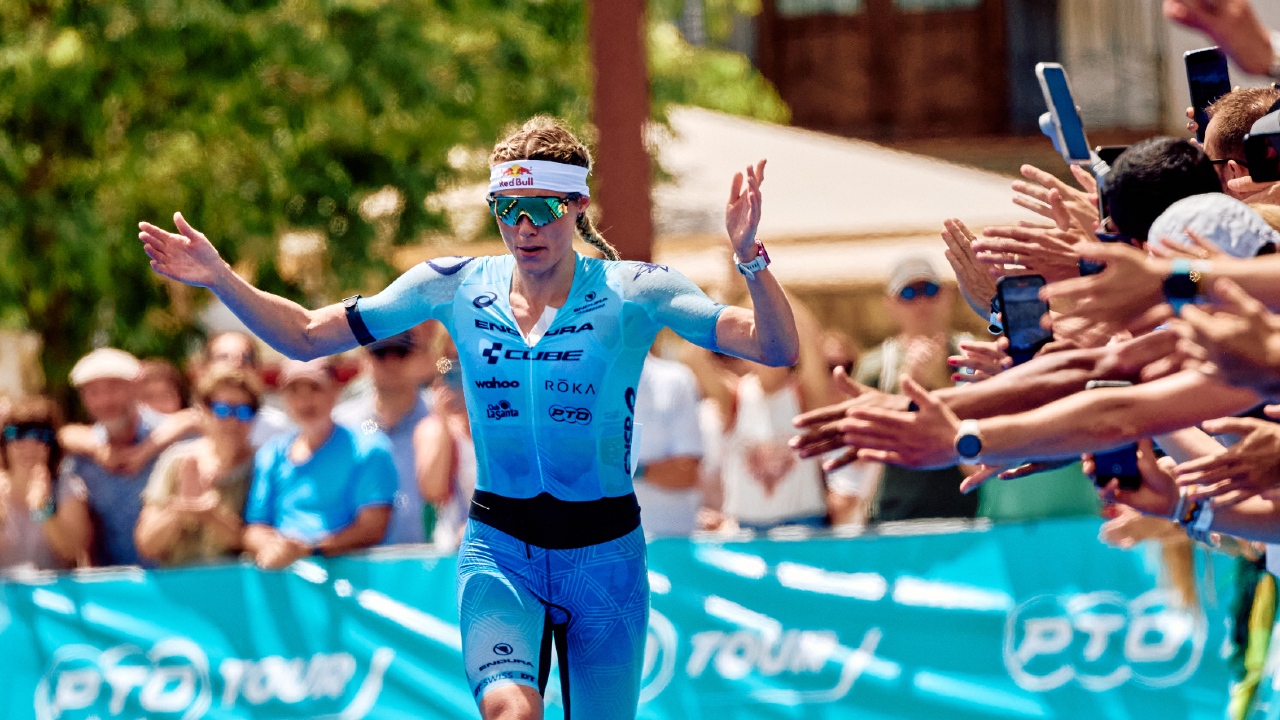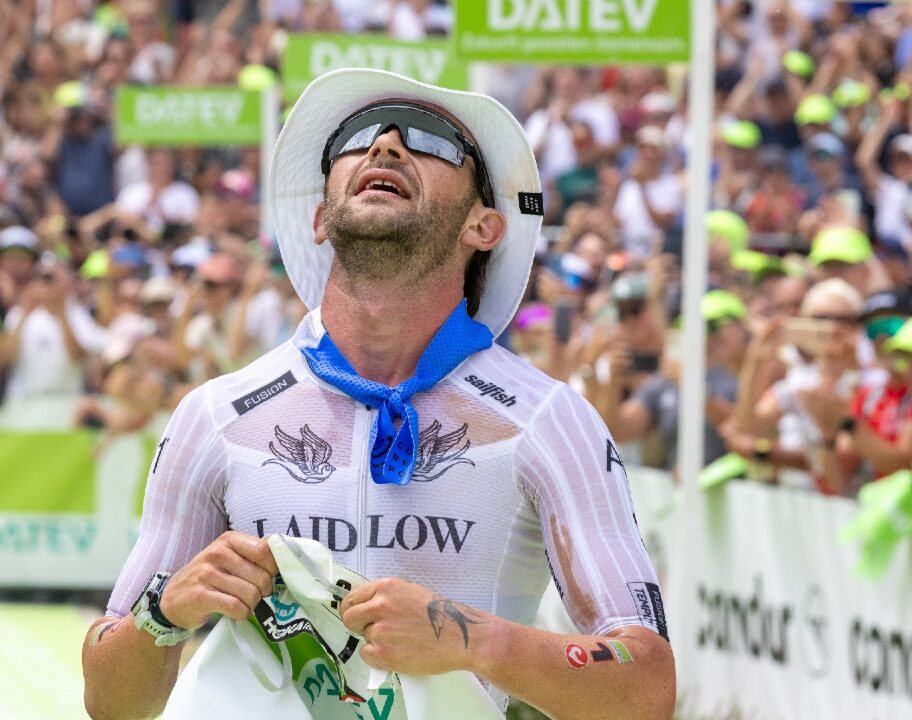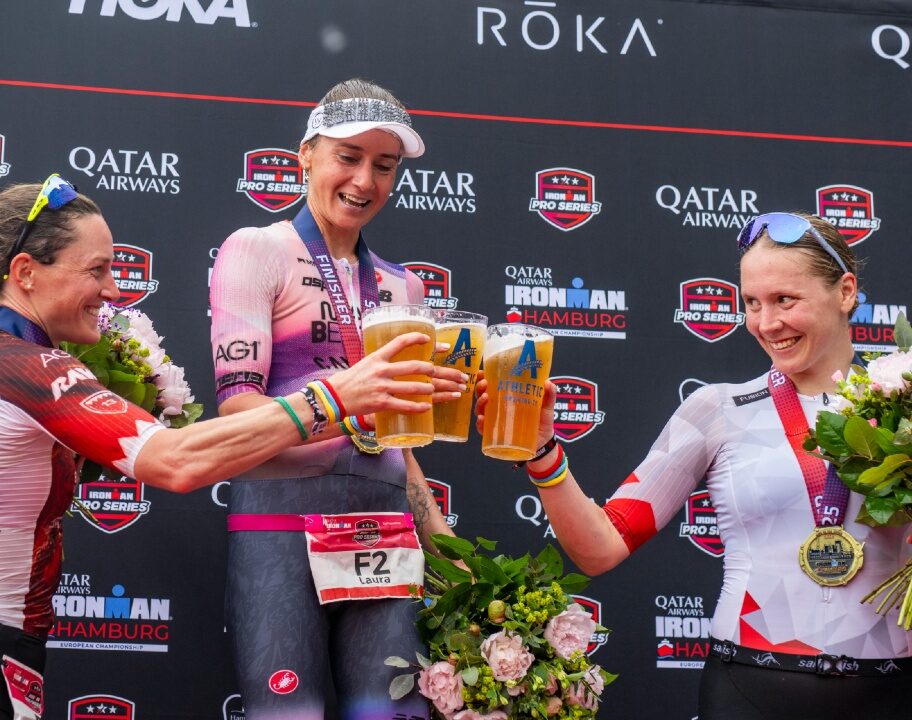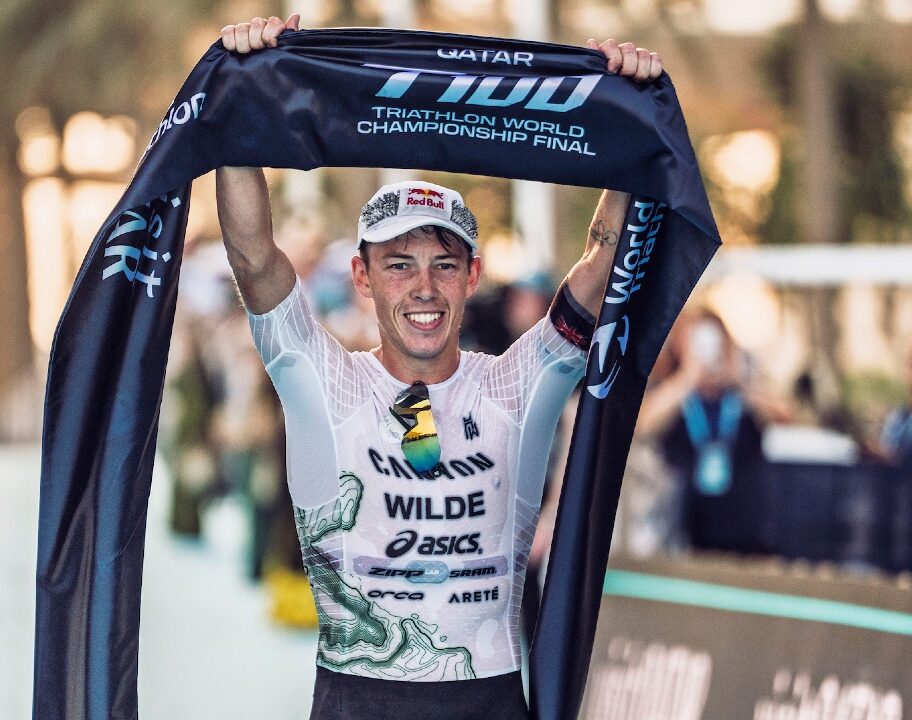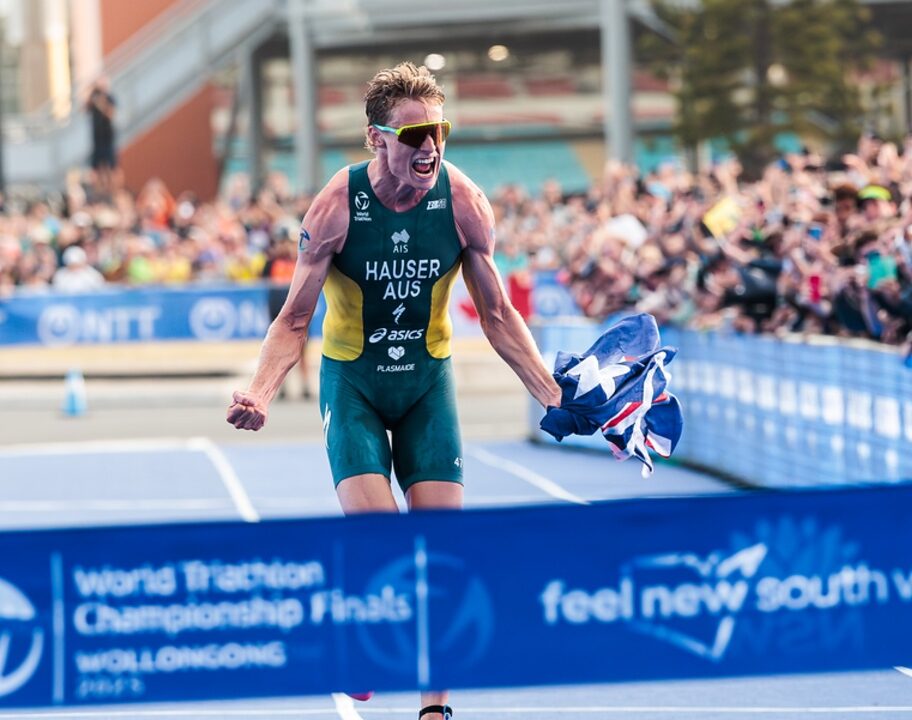As 2023 comes to a close are the Professional Triathletes Organisation on track with their aims and ambitions for the sport and themselves?
There’s no doubt their PTO Tour races – three in 2022 and the same number this year – have galvanised the triathlon landscape by attracting the very best athletes to regularly race against each other for what, in triathlon terms, is huge prizemoney.
And now the IRONMAN Pro Series, which has been announced for 2024, appears a direct response and adds further significant money into the pool.
We’ll look in more detail early next year at the dynamics of the PTO, IRONMAN, World Triathlon and others co-existing in what’s likely to be a packed calendar.
But putting the spotlight purely on the PTO for now, can they not only take triathlon to a far wider audience but also deliver for Sir Michael Moritz and their other major investors?
‘We’re ahead of our investor metric’
We sat down with the PTO’s CEO Sam Renouf and one of the first questions we asked was how far are they from profitability – and what does he see as the key steps to getting there.
And he told us: “There is not a public path to profitability that we’ve shared, but we’re ahead of our investor metric is probably the best way of saying it. Our investors are very happy.
If anything, this is a double-down. And so the investors have been supportive of the journey that we’re taking.
“We think we really have shown over the last two years the potential that triathlon can go mainstream. It’s not an overnight thing. You can’t flick a switch.
“Look at road cycling in the UK – it was fairly niche before Sky doubled down on it. Five or six years of concentrated effort from various different parties, and cycling became mainstream. We think it’ll be a similar kind of journey and probably a similar kind of timeframe for us.”
‘It’s about doing more’
Just two PTO races have been announced so far for next season and their full schedule won’t be released until early 2024 but the expectation is for at least another four events in addition to Singapore and Ibiza, with Renouf adding: “This next year is an evolution of the plan in quite a big way. When we first started, we talked about creating an equivalent of the majors, which would only be four races.
“But we found quite quickly that the traction we were getting from media was that this can be a television sport, but for it to be truly valuable and get cut through, we need more volume. And so that’s why we’ve really evolved now into a sort of PTO 2.0 – it’s about doing more.

“We’re definitely further ahead than where I anticipated being with television and beginning to get the kind of traction with sponsorships that we’d like.”
Pivotal to that for Renouf is the broadcast product.
The coverage of the PTO races has stepped up again this year but he admits there’s still a long way to go, saying: “This is a fairly obvious point, but our competition isn’t Ironman, it isn’t Super League, it isn’t World Triathlon.
“Our competition genuinely is the likes of the ATP and the PGA, because when Warner Bros Discovery or CBC [who both partner with the PTO] are choosing which limited windows they give to what sport, that’s who we’re competing with.
That’s an incredibly high bar and we’re not there yet.
“But I think we’re showing the potential and that’s why the broadcasters are giving us the windows that we want.”
Creating household names
And the race coverage can’t be one-dimensional if it’s to make its mark, something Renouf agrees with: “It won’t truly be ready until we’ve got more robust biometrics and data and graphics which are live alongside the pictures – we think that second-screen environment is a really important part, which we’re making progress on.
“If we can get those kind of three pieces lined up, then we think this has got the potential to shine through, as indeed do our television partners, because some of them have become investors. Warner Bros is an investor and they’re helping us on that journey on almost a daily basis.”
Allied to all of which is the story telling aspect that the PTO and Renouf have felt is crucial from the outset.
More races in 2024 and beyond will only help with that as he acknowledges: “Give us a season-long narrative, and once we’ve got enough repetition with regular faces and names, that’s how we begin to get cut through.
“Hopefully, in a couple of years the likes of Lucy Charles-Barclay will genuinely become household names.”
